In honor of Black History Month, we are featuring interviews with local Black community leaders. These pieces were written by Baylor University students from the Department of Journalism, Public Relations, and New Media. The students asked questions about what the leaders love about Waco, and we are excited to share their responses with you this month.
By Belle Ebner
Waco is a small city that can make a big impact, according to Cuevas Peacock, who works in Baylor University’s Office of External Affairs. It’s a place that is persistently growing and continues to make strides toward improvement.
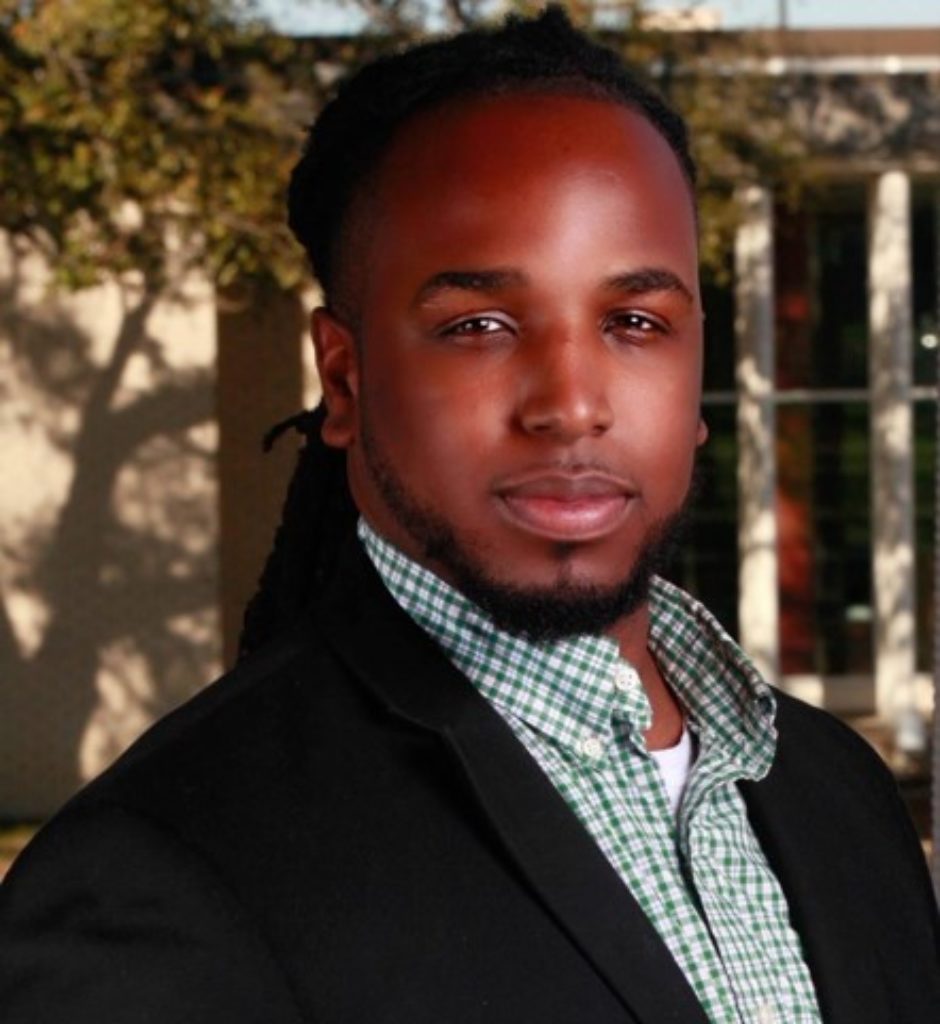
For much too long, people would say Waco is just a pit stop on a road trip to somewhere more interesting, Peacock said. But through his time working with Grassroots Community Development and at Baylor, Peacock has seen the city transform.
“By being involved in these various things, I am able to see first-hand just what can happen in Waco, and it’s exciting,” he said.
Peacock said he was a community organizer at Grassroots and was responsible for identifying opportunities for growth in the community. He was pleasantly surprised at the community’s willingness to participate in the city’s success and their receptiveness to new ideas.
In Waco, there is a strong sense of connectivity one can’t get in bigger cities, according to Peacock. People in Waco wish to find long-term solutions to issues in their community as well as working together to advance equity. Peacock said he is good friends with prominent citizens of Waco, including the mayor.
“Wow,” Peacock said. “Could you have these types of relationships in bigger cities? I don’t think you can.”
Waco is a community built on educational opportunities, Peacock said. If someone wants to gain a skill or knowledge, they have the opportunity at Baylor University, McLennan Community College, Texas State Technical College, and various other educational organizations.
Baylor University is a large part of the city’s identity, and Peacock said his job includes “bursting the bubble” that surrounds the university and integrating it more into the Waco community. By bridging the two, Peacock believes Waco can become even more culturally vibrant and progressive.
Organizations such as the Grassroots ensure that solutions are resident-driven and that the people have power, according to Peacock. By making sure the public has the resources to create change themselves, Waco has become a uniquely proactive community.
“If they have an idea, if they have a vision, if they have a thought, if they have a belief, I would encourage them to act on it,” he said.
There’s a certain Waco attitude that encourages being receptive to new ideas and supporting the idea that change is beneficial, Peacock said. Even if one is tentative to call for change or make a suggestion, there are people in the community who will help them make the necessary steps.
The connectivity and willingness to support one’s neighbors is what cultivates such a strong community in Waco. The more involved one becomes in providing solutions and improving the city, the more one becomes hopeful for Waco’s future, according to Peacock.
“I know what’s to come. I see the vision,” he said. Peacock has a vision for an ever-evolving city with a passion for change.

Belle Ebner is from Colorado and is majoring in journalism and public relations at Baylor University.
The Act Locally Waco blog publishes posts with a connection to these aspirations for Waco. If you are interested in writing for the Act Locally Waco Blog, please email Ferrell Foster at [email protected].
In honor of Black History Month, we are featuring interviews with local Black community leaders. These pieces were written by Baylor University students from the Department of Journalism, Public Relations, and New Media. The students asked questions about what the leaders love about Waco, and we are excited to share their responses with you this month.
By Caitlin Babcock
At the heart of what Galen Price, Waco interim assistant city manager, does every day is listening to the people of Waco. He listens to citizens and to business owners, to praises and to complaints. This listening then shapes his priorities.
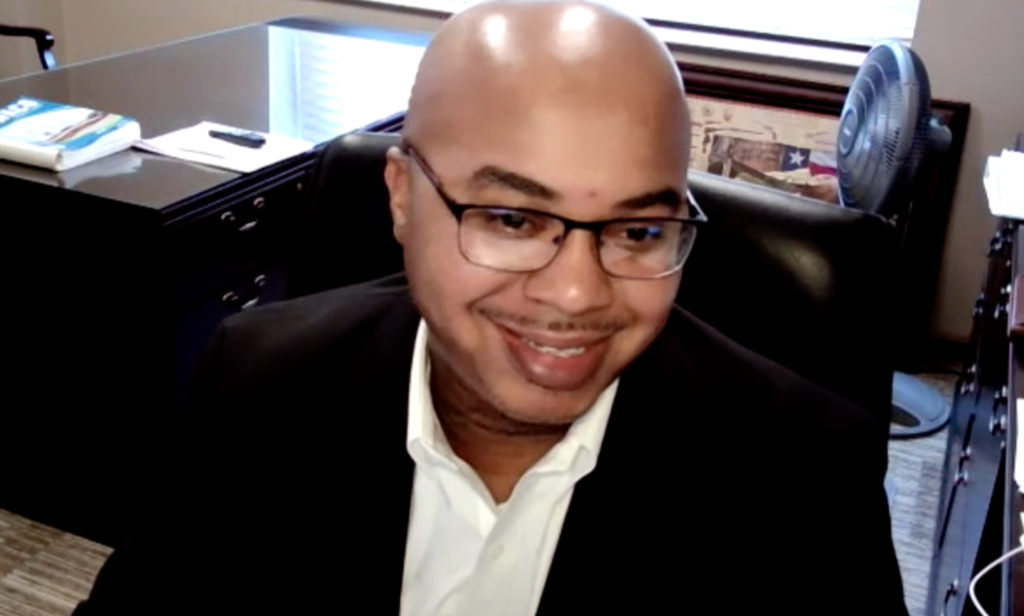
Price sees his role as serving the needs of the community. Because of this, he views it as very important that citizens speak up about their needs. Listening to the community allows him and his team to enforce the policies that are working well and to know where the city is falling short.
“Just being involved so you can hear what’s going on, that gives you an opportunity to have a voice in what’s being considered and provide feedback on how it’s being viewed by you as a citizen in a community,” Price says.
According to Price, there are numerous ways for citizens of Waco to make their voices heard. He suggests that residents attend city council meetings, which are currently held online due to the pandemic. Price also suggests citizens attend neighborhood association meetings or start their own association if their neighborhood doesn’t have one.
Price became interim assistant city manager in August, after Deidra Emerson, who previously held that role, was promoted to deputy city manager, according to a 2019 article in the Waco Tribune-Herald. “It was an opportunity that you dream of and just couldn’t pass up,” Price said.
Price has spent 21 years in municipal government work, since he graduated from the University of North Texas in Fort Worth. He has been in Waco since 2017. Before coming to Waco, he worked on housing projects in Irving. Previous to becoming interim city manager, Price worked as the city’s director of housing and community development. While in this position, he worked with Waco’s Family Abuse Center and Mission Waco, a Christian organization that addresses systemic issues with poverty.
Price says Waco is making significant investments into its infrastructure, economy, and housing. He says that even before home designers Chip and Joanna Gaines brought Waco into the national spotlight, good things were going on in the city.
“I can one day envision Waco being one of the places that’s considered one of the best places to live in the nation,” Price says.
Price said he loves Waco because although it is developing, it still has a small-town feel. That feel is something that differs from his large hometown of Fort Worth.
“Relocating here from the metroplex, I enjoy the camaraderie and the way people make you feel at home here,” Price says. “As we continue to grow, let’s do our best to try to keep that feel.”

Caitlin Babcock is a sophomore at Baylor University from Colorado. She is majoring in international studies and double minoring in Spanish and journalism. She hopes to find a career in international journalism.
The Act Locally Waco blog publishes posts with a connection to these aspirations for Waco. If you are interested in writing for the Act Locally Waco Blog, please email Ferrell Foster at [email protected].
In honor of Black History Month, we are featuring interviews with local Black community leaders. These pieces were written by Baylor University students from the Department of Journalism, Public Relations, and New Media. The students asked questions about what the leaders love about Waco, and we are excited to share their responses with you this month.
By Katelyn Wilmoth
During her time reporting the news, KCEN reporter and former news anchor Jasmin Caldwell has found many reasons to love Waco.

As a reporter, Caldwell said it is important to “stay on top” on everything that goes on in the Waco community. She said it is her job to cover everything from politics to the happier stories which makes the job more interesting. Caldwell said one of her favorite things about being a reporter is meeting people from “all walks of life” throughout the community.
“It’s one of those jobs that keeps you on your toes and you will never get bored with being a news reporter,” Caldwell said.
In the three years Caldwell has lived in Waco, she has been able to host several events for the Cen-Tex African American Chamber of Commerce in Waco. Caldwell said the chamber helps small local businesses in the Waco area, and she is a huge supporter of the organization.
Caldwell said she also enjoys exploring new places to shop. With the Waco community growing at such a fast rate, Caldwell said there is always something new to look for. One of her favorite things to do in Waco is get a group of friends together and spend the day taking pictures around town, especially at Magnolia.
“I love getting dressed up to go down to the Silos to take pictures because it is the best, most perfect place to take them,” Caldwell said.
Before moving to Waco, Caldwell worked for a news station in Charlottesville, Va., where she worked on a story that made national news. Caldwell said the Robert E. Lee statue had been an ongoing issue of racism in Charlottesville for a long time, and she was happy to be a part of the team that brought the issue nationwide. She discovered from the beginning of her career that “working on local issues means a lot to the community.”
“I am happy that the story went national, so the world could see what was going on in such a small town,” Caldwell said.
Caldwell is also a part of the National Association of Black Journalists. The organization was created to help reporters and journalists stay connected to help find jobs and network with journalists worldwide.
“It is such a cool opportunity to see other journalists who are doing the same thing as me,” Caldwell said.
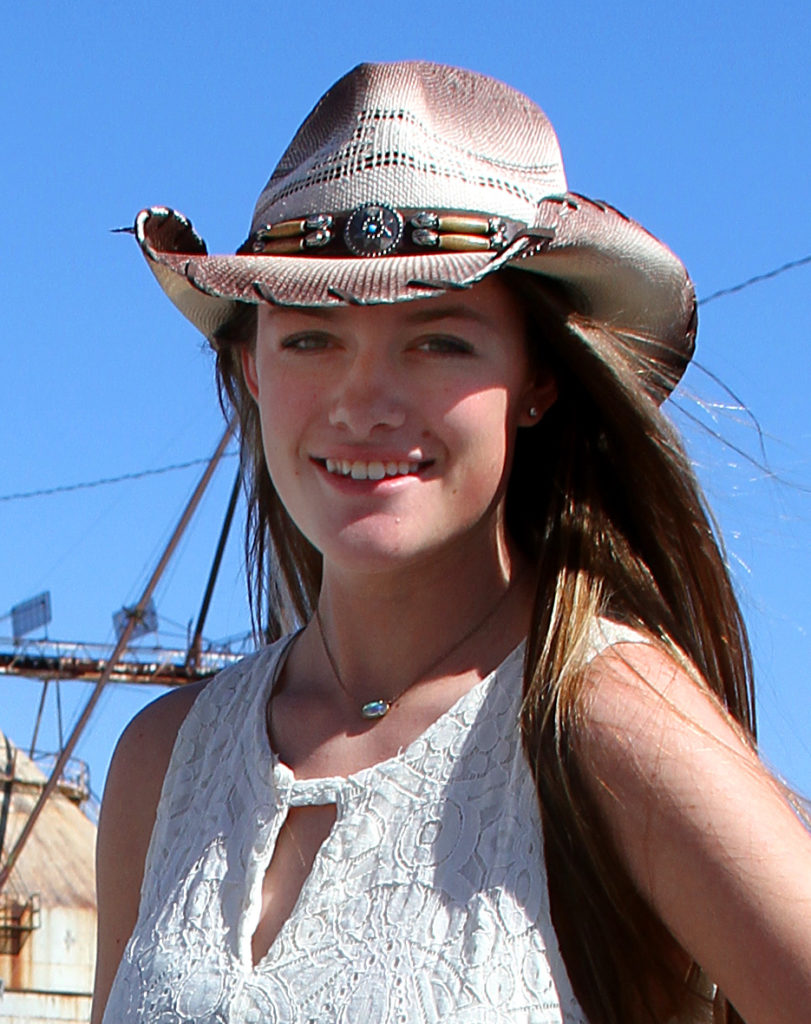
Katelyn Wilmoth is a first-year student at Baylor University. She is studying journalism to one day become a professional reporter while covering everything from education to entertainment.
The Act Locally Waco blog publishes posts with a connection to these aspirations for Waco. If you are interested in writing for the Act Locally Waco Blog, please email Ferrell Foster at [email protected].
In honor of Black History Month, we are featuring interviews with local Black community leaders. These pieces were written by Baylor University students from the Department of Journalism, Public Relations, and New Media. The students asked questions about what the leaders love about Waco, and we are excited to share their responses with you this month.
By Tim Longoria
Due to the recent worldwide pandemic and businesses shutting down because of it, it has become more difficult to enjoy all that Waco has to offer. Luckily, Waco’s new Fire Chief Gregory Summers said there are still plenty of activities that Waco residents can take part in when they have free time.
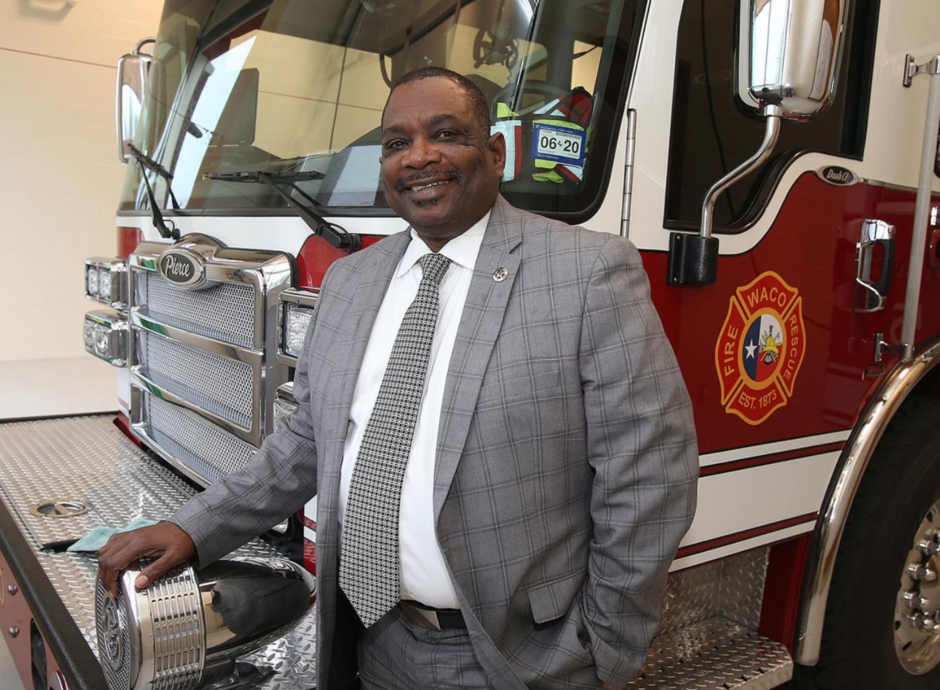
Coming from Little Rock, Ark., Summers started at Station No. 5 in early April, and he said each month he gets more and more accustomed to Waco. Summers likes to spend a lot of time outside with his wife, Jeanette.
“If we go to a restaurant, my wife and I, we are looking to go to a patio,” Summers said.
Restaurants like Magnolia Table, George’s, and Jake’s Texas Tea House, all of which are some of Summers’ favorite places to eat in Waco, have outdoor seating with 4 1/2 star ratings out of five, according to tripadvisor.com.
As it has been colder, Summers said he will start ordering more food to his house if he and Jeanette happen to get caught in the cold. And if going out to eat doesn’t seem like a popular idea to the Summers family on any particular day, outdoor activities seem to be a fine alternative.
“I can tell you, Cameron Park is an awesome park,” said Summers. “We just love riding down … looking at the statues.”
Cameron Park is a 416-acre park that includes the Waco Sculpture Zoo along the side of the Brazos River. There are 28 different styles of sculptures designed by people all over the United States, displayed across the river for a mile featuring animals that are common in the Waco area or found in the Cameron Park Zoo.
Summers and his wife have lived in Waco for almost a full year and, like everyone else, haven’t been able to experience the city in its entirety for some time. Once more businesses start opening, Summers said that he and Jeanette would feel more comfortable spending more time in public.
While it didn’t take long for Summers to adjust to a Texan lifestyle, he gave credit to his firefighters for “adapting very well to the COVID-19 disease.” In 35 years in fire service, Summers has been in a leadership position for almost the entire time. Before he became a fire chief in 2009, Summers had previous experience as an assistant fire chief and an interim fire chief.
Summers said he can’t wait to be “heavily involved in the community once this pandemic is in the rear-view mirror,” like he was in Little Rock during the majority of his fire service.
Staying close to his wife and firefighters at the station for the time being, Summers hopes to be able to return to normal life and the regular feeling of being a leader in Waco.
Tim Longoria is a freshman journalism major at Baylor University hoping to get a job as a sports broadcaster.
The Act Locally Waco blog publishes posts with a connection to these aspirations for Waco. If you are interested in writing for the Act Locally Waco Blog, please email Ferrell Foster at [email protected].
By Ashley Bean Thornton
Like many White, middle-class Americans, I grew up understanding life as a competition, a footrace. The ones who run the fastest, and by that I mean work the hardest, win the prizes. I knew good, hardworking people – my parents for example – who were winning, and I expected to be a good, hardworking person who would also win. In fact, that is exactly how it has played out so far.
Of course… to feel good about winning, you have to believe the race is fair.
I don’t remember having “Black History Month” when I was in school, but we definitely studied slavery and the Civil War. We saw slides of the Little Rock Nine being escorted to class by the National Guard, and of White people turning dogs and fire hoses on Black people. We learned about Rosa Parks taking her seat on the bus in Montgomery, and we learned about Martin Luther King, Jr. and the “I have a Dream” speech.
Without even thinking about it, I interpreted all of this through my footrace metaphor, like so: (1) Slavery was an unthinkably horrible sin. (2) Even after slavery ended, the race was not fair. White people cheated – a lot. (3) Thanks to Dr. King, and the heroes of the Civil Rights Movement, Black people were able to use the legal system to make the race fair. Conclusion: Things were terrible before, but they are OK now; we can quit worrying so much about the Black/White thing, and just concentrate on running as fast as we can.
I was fairly comfortable with this conclusion for a long time.
Recently I came across a 2013 Pew Research Center Report partially titled “King’s Dream Remains an Elusive Goal.” According to this report, Black Americans are nearly three times as likely as White Americans to have incomes below the poverty guideline. The median net worth (wealth) for White households is more than ten times that of Black households, and Black men are six times as likely to be incarcerated as White men. With these facts in mind, I have to ask myself an uncomfortable question: if the race is fair, why do we continue to see such huge disparities?
It seems blindingly obvious now, but it took me a long time to realize that if I wanted to begin to untangle the knot of reasons behind these differences I needed to tweak my footrace metaphor. In my mind the race for success had always been an individual event. If I win it is because of my hard work; if I lose it’s because I should have worked harder. If you lose…well … you get the picture. I still believe this is the truth; it’s just not the whole truth. Hard work matters, but it’s also important to realize that the race is not, and never has been, an individual event. It’s a relay.
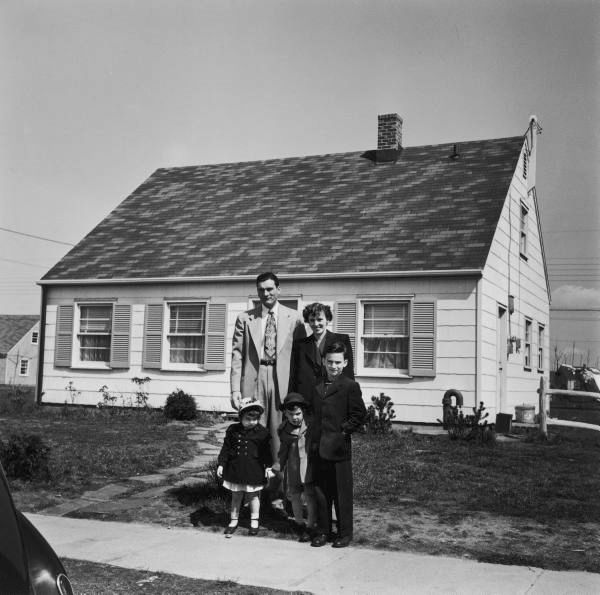 Let’s say, for example, my White grandparents saved their money and bought a house in the suburbs back in the 40’s. That house increased in value and became part of the nest egg my parents used to get an even nicer house in an even better neighborhood. That meant I got to go to a really good high school, and from there to a good university, and from there to a good job. Meanwhile Black grandparents in the 40’s didn’t get to buy that house in the suburbs because of prejudicial deed restrictions (not to mention inhospitable neighbors). To make matters worse, no (White owned) bank would loan them the money to build a nice house in a Black neighborhood because it was “too high risk.” That meant no nest egg, no nicer house for their kids, and a not so great high school in a declining neighborhood for their grandkids – my peers. Multiply this scenario by thousands of Black and White grandparents and you begin to see one reason why there is such a huge disparity in wealth between Black and White households today.
Let’s say, for example, my White grandparents saved their money and bought a house in the suburbs back in the 40’s. That house increased in value and became part of the nest egg my parents used to get an even nicer house in an even better neighborhood. That meant I got to go to a really good high school, and from there to a good university, and from there to a good job. Meanwhile Black grandparents in the 40’s didn’t get to buy that house in the suburbs because of prejudicial deed restrictions (not to mention inhospitable neighbors). To make matters worse, no (White owned) bank would loan them the money to build a nice house in a Black neighborhood because it was “too high risk.” That meant no nest egg, no nicer house for their kids, and a not so great high school in a declining neighborhood for their grandkids – my peers. Multiply this scenario by thousands of Black and White grandparents and you begin to see one reason why there is such a huge disparity in wealth between Black and White households today.
Even if the leg of the relay I’m running now is reasonably fair (or at least fair-er), the previous legs of the race were seriously rigged in favor of White people. I was way, way ahead before I ever started to run.
I do not know exactly what we should do to even out the disparities that have come about as a result of the inequities of the past. Should we invest more in public schools? In rebuilding high poverty neighborhoods? Should we provide more support to Black-owned businesses? Should we take a hard look at our legal system? Maybe we should do all of these things; maybe none of them; maybe there are other creative solutions I can’t even imagine. I don’t know. I just know that there is a limit to how much time even a great athlete can make up in the last lap of a relay. If we care about reducing the Black/White disparities described above any time soon, we are going to have to do something more than just telling people to “run as fast as you can.”
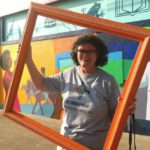 This week’s Act Locally Waco blog post is by Ashley Bean Thornton, the Manager of the www.www.actlocallywaco.org website and the editor of the Friday Update newsletter. The Act Locally Waco blog publishes posts with a connection to these aspirations for Waco. If you are interested in writing for the Act Locally Waco Blog, please email [email protected] for more information.
This week’s Act Locally Waco blog post is by Ashley Bean Thornton, the Manager of the www.www.actlocallywaco.org website and the editor of the Friday Update newsletter. The Act Locally Waco blog publishes posts with a connection to these aspirations for Waco. If you are interested in writing for the Act Locally Waco Blog, please email [email protected] for more information.
- « Previous
- 1
- 2
